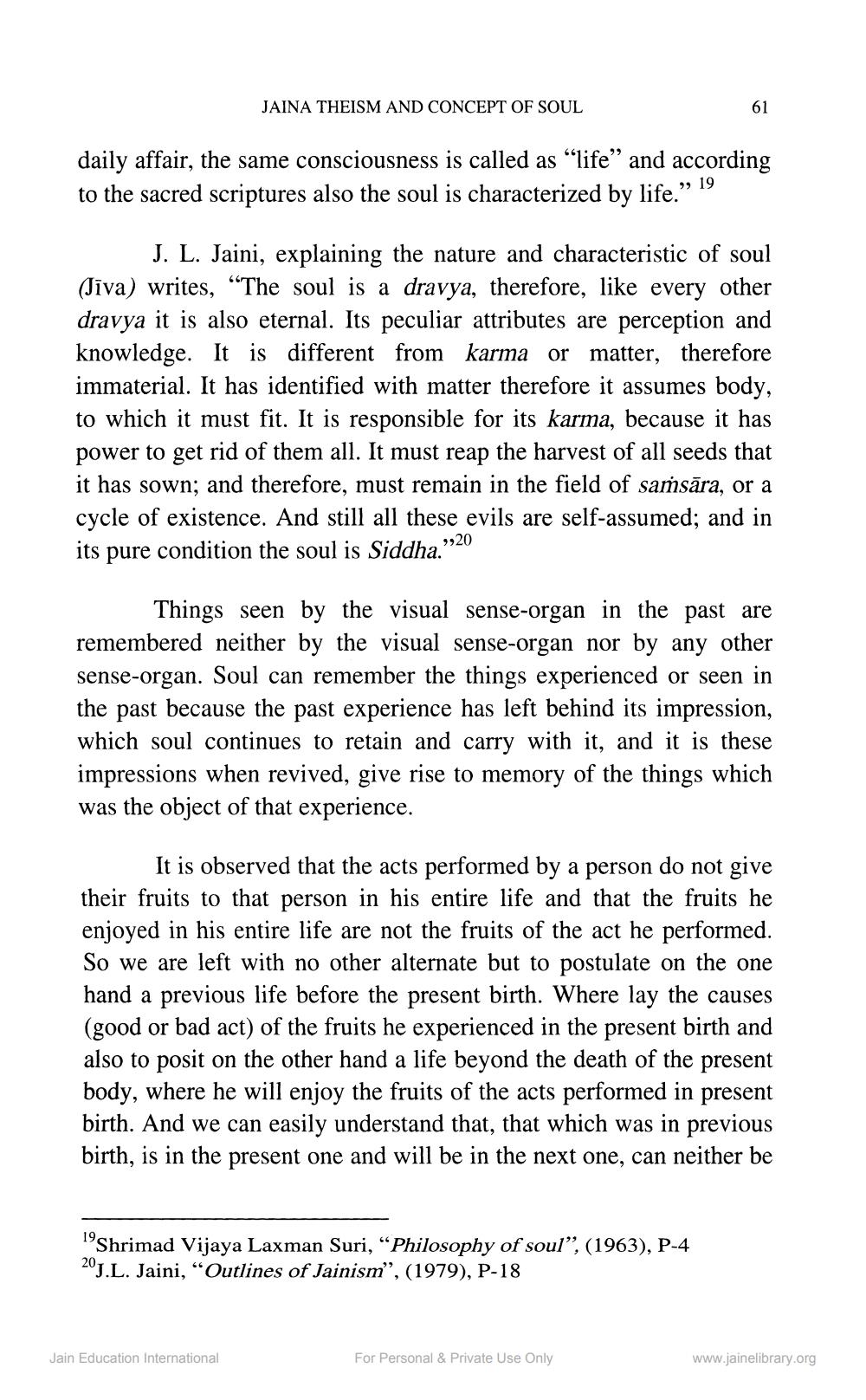________________
JAINA THEISM AND CONCEPT OF SOUL
daily affair, the same consciousness is called as "life" and according to the sacred scriptures also the soul is characterized by life." !
J. L. Jaini, explaining the nature and characteristic of soul (Jīva) writes, “The soul is a dravya, therefore, like every other dravya it is also eternal. Its peculiar attributes are perception and knowledge. It is different from karma or matter, therefore immaterial. It has identified with matter therefore it assumes body, to which it must fit. It is responsible for its karma, because it has power to get rid of them all. It must reap the harvest of all seeds that it has sown; and therefore, must remain in the field of saṁsāra, or a cycle of existence. And still all these evils are self-assumed; and in its pure condition the soul is Siddha."-20
Things seen by the visual sense-organ in the past are remembered neither by the visual sense-organ nor by any other sense-organ. Soul can remember the things experienced or seen in the past because the past experience has left behind its impression, which soul continues to retain and carry with it, and it is these impressions when revived, give rise to memory of the things which was the object of that experience.
It is observed that the acts performed by a person do not give their fruits to that person in his entire life and that the fruits he enjoyed in his entire life are not the fruits of the act he performed. So we are left with no other alternate but to postulate on the one hand a previous life before the present birth. Where lay the causes (good or bad act) of the fruits he experienced in the present birth and also to posit on the other hand a life beyond the death of the present body, where he will enjoy the fruits of the acts performed in present birth. And we can easily understand that, that which was in previous birth, is in the present one and will be in the next one, can neither be
"'Shrimad Vijaya Laxman Suri, “Philosophy of soul", (1963), P-4 20J.L. Jaini, “Outlines of Jainism”, (1979), P-18
Jain Education International
For Personal & Private Use Only
www.jainelibrary.org




